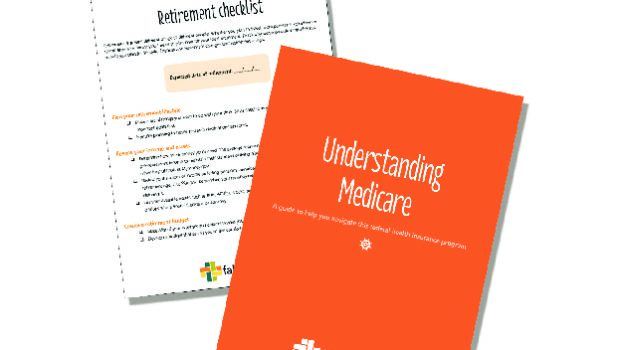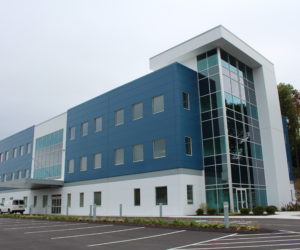This story was originally published in the August 2019 edition of the Chamber Exchange newspaper. To receive hard copies of the newspaper, contact Director of Communications Emily Gowdey-Backus, in addition, a digital copy can be viewed here.
Every day is one step closer to retirement.
The average baby boomer is between 61 and 65, so their post-retirement future may be starting to come into focus. With the future in mind, it’s important to remember to also plan for health care coverage.
Medicare can be confusing. That’s why, as you approach age 65, it’s important to proactively learn about Medicare coverage options and how the Medicare program works.
Although Medicare is complex, you have an ally right in your backyard – Fallon Health. With nearly 40 years of experience offering Medicare solutions to the communities we serve, we have learned a lot and want to share three things you need to know about enrolling in Medicare.
1. ENROLL ON TIME
It’s important to enroll in Medicare when you first become eligible. Timely enrollment ensures you have coverage when you need it and helps you avoid financial penalties.
While some become eligible for Medicare due to a disability or illness, most people become eligible for Medicare at age 65. You may join Medicare during your Initial Enrollment Period – a seven-month timeframe which starts three months prior to the month of your 65th birthday and ends three months after.
To start your enrollment, you will need to contact the Social Security Administration. Some people will be automatically enrolled in Medicare, but it’s best to start the process on your own. This is true even if you plan to continue working for a while after you turn 65.
2. GET THE COVERAGE YOU NEED
Medicare consists of different parts – outlined below – and each provides different coverage. It’s important to think about what kind of coverage you want now and what you may need in the future.
First, let’s look at Medicare’s basic coverage, Original Medicare. This coverage type includes parts A and B. Part A is hospital insurance which helps pay for things like hospital care, stays in a skilled nursing facility, hospice, and home health care. Part B is medical insurance which provides coverage for visits to your doctor, preventive screenings and flu shots, ambulance rides, lab tests, and X-rays.
You can enroll in one or both parts. With Original Medicare, you receive coverage directly from the Medicare program, and you can receive care from any provider who accepts Medicare and accepts you as a patient.
It’s important to note that Original Medicare doesn’t cover everything you may need like routine dental services, most prescription drugs, and vision screenings among others. This is why you have the option to enhance your Medicare coverage with a Part C and/or Part D plan.
Let’s start with the simplest enhancement option – Part D, Medicare Prescription Drug plans. These plans provide coverage for prescription medications only. This type of coverage can be added to Original Medicare or a Medicare Supplement plan.
Part C plans, also known as Medicare Advantage, cover all the benefits included in Medicare Parts A and B – and more. Many of these plans also offer prescription drug coverage. Additional covered benefits may include gym memberships, routine dental services, hearing aids, glasses, and more.
These plans offer similar coverage and cost-sharing as many traditional, commercial plans – like the coverage you may have now from your employer.
Finally, there are Medicare Supplement (Medigap) plans. These plans cover the same benefits as Medicare parts A and B, and they cover most out-of-pocket costs like deductibles, coinsurance, and copayments.
3. EDUCATION FOR EMPLOYEES
Employers are invested in their workforce. Retirement options and health care savings plans are some of the ways they help secure the financial future of their employees. Yet, it’s important to understand that employers have a lot of “retirement planning” to do for themselves. According to Pew Research Center and the Social Security Administration, a wave of baby boomers is retiring – 10,000 every day – and with this amount of people leaving the workforce, local companies have a lot on their plate.
The good news for employers is that there are a lot of local resources, including Fallon Health, that can assist. Working directly with management teams to educate employees, we will take the burden off businesses – at no cost to the employer or employee – in order to help meet retirement goals.
The bottom line is that Medicare can be intimidating.
But, with the right help, you can have the confidence you need to move forward. Retirement should be an exciting time, and getting a dose of simplified Medicare information might be just what the doctor ordered.
By Andre Gabryjelski, Fallon Heath Director of Medicare Advantage, Worcester Regional Chamber of Commerce director of communications.






